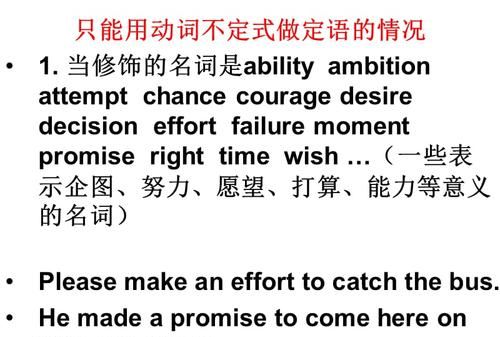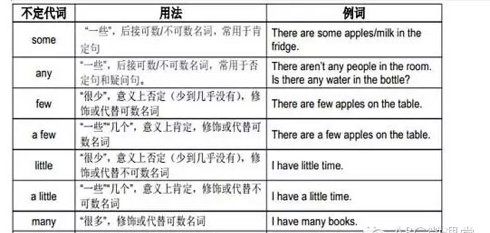本文目录
定语后置句的四种类型和例句
(一)定语后置规律把握法。定语后置,就是把定语置于中心词之后。这种定语后置,在文言文中有四种类型:①数量词定语后置;②楚辞句式的定语后置;③用“者”字结构将定语后置;④“所”字结构作定语后置。不管哪种类型,其特点都是将定语置于中心词之后,这是规律。我们把握住这一点,只要在句中(或偏正短语中)找出哪是中心词哪是定语,看看定语是否置于中心词后,定语置于中心词之后的,便是定语后置。翻译时应改为前置。操作示例: 1.数量词定语后置。文言文中数量词或数词作定语,可以前置,与现代汉语相同;也可以后置,与现代汉语相反。如: ①军书十二卷,卷卷有爷名。(《木兰辞》) ——十二卷军书上,每一卷上都有爷的名字。(“军书”是中心词,“十二卷”是数量词修饰“军书”的,作定语,后置了,翻译时改作前置。下列诸句同。) ②以乘韦先,牛十二犒师。(《肴之战》) ——用四张熟牛皮作先行礼物,再用十二头牛犒劳军队。(“十二”是数词) 2.楚辞句式。“楚辞”代表着南方方言,其定语往往后置。如: ①带长铗之陆离兮,冠切云之崔嵬。(《涉江》)佩带着光闪闪的长剑,戴着高耸耸的切云冠。后代也有用这种句式的。如: ②居庙堂之高,则忧其民:处江湖之远,则忧其君。(《岳阳楼记》) ——处在高高的庙堂,就为那老百姓操心;住在远远的江湖,就为那君主担忧。 3.用“者”字结构将定语后置。这种定语后置,有个特殊标志,总是用助词“者”来煞尾。有时,在中心词与定语之间插上“之”(或“而”,或“有”)字。如: ①人马冻死者相望。(《李愬雪夜入蔡州》) ——冻死的人马随处可见。 ②并以为国人之读兹编者勖。(《黄花冈七十二烈士事略》序) ——并且用它对读这本书的国人(进行)勉励。 ③此四者,天下之穷民而无告者。(《孟子?梁惠王下》) ——这四种人是天下没处伸诉的穷苦百姓。 ④楚人有涉江者。(《察今》) ——有个渡江的楚国人。值得注意的是,有一种句子定语被中心词切割为两部分,一部分前置,一部分后置。如: ⑤信至国……召辱己之少年令出胯下者,以为楚中尉。(《史记?淮阴侯列传》) ——韩信前往自己的封国(楚国)……召来曾侮辱过自己让自己从他胯下爬过去的那个青年人,叫他担任楚国中尉。说明:这第三种类型的定语后置,有很多人赞成,也有很多人反对。作为句法分析可以进一步讨论。我个人是赞成的,因为承认定语后置说较有利,译出的句子也较简洁;再者,就是现代汉语中,也有定语后置的句式。如:“党员革命意志衰退,不履行党员义务,不符合党员标准,经多次教育帮助仍无转变的,劝其退党,不予登记。”(《中共中央关于整党的决定》)这种定语后置的句式,有突出中心词的作用。 4.“所”字结构作定语后置。如: ①怨愤所积,如怒涛排壑……(《黄花冈七十二烈士事略》序) ——(对清朝统治者)长期积聚的怨恨和愤怒,像汹涌的洪水冲出山沟一样……(“怨愤”是中心词,“所积”——“所”字结构作定语,后置,翻译时前置。) 注意与“所”字结构作定语前置的区别。如: ②所得表众亦极七八万耳。(《赤壁之战》) ——得到的刘表的军队最多不过七八万人。(“所得”的对象是“表众”,作“表众”的定语,前置与例①不同。)

不定代词的举例子
1.some 一些,某些,某个
不定代词some可以代替名词和形容词,常用在肯定句中作主语(也可以在以would,may,can,could疑问词开头的句子做主语)、宾语、定语等。作定语时,它可以修饰可数名词(单、复数皆可)和不可数名词。例如:
some are doctors,some are nurses.有些人是医生,有些人是护士。(作主语)
2.any一些,任何
不定代词any可以代替名词和形容词,常用在否定句或疑问句中作主语、宾语、定语等。作定语时,它可以修饰可数名词(多为复数)和不可数名词。例如:
there isn’t any ink in my pen.我的钢笔没有墨水。(作定语)
不定代词any有时也可以用在肯定句中,表示任何的。例如:
you may come at any time;i’ll be home the whole day.你任何时候来都行,我整天都将呆在家里 。
不定代词any也可以用作副词,做状语,表示程度。例如:
is he any better today?他今天好一点了吗?
3.all 全体,所有(指三者以上,包括三者)
不定代词all在句中可以作主语、宾语、表语、定语或同位语。它可以代表或修饰可数名词和不可数名词。代表或修饰可数名词时,指两个以上的人或物。作先行词时,引导词用that。例如:
All were present at the meeting.全都到会了。(作主语,代表可数名词)
4.both 全部,都
不定代词both指两个人或事物。和all一样,可以用作主语、宾语、定语或同位语。例如:
we invited both to come to our farm.我们邀请两个人都来我们的农场?(作宾语)
5.none 无人或无
不定代词none的含义和all物相反,和no one,not any同义,但其用法相当于名词,在句子中一般作主语或宾语。它代替不可数名词作主语时,谓语动词用单数形式;代替可数名词作主语时,谓语动词用单、复数皆可。例如:
none of the problems is /are easy to solve.这些问题没有一个是容易解决的。(作主语, 代替可数名词)
6.either 两者之中的任何一个,这个或那个。
不定代词 either 可以作主语、宾语和定语。例如:
either of them will agree to this arrangment.他们两人中会有人同意这样的安排的。(作主语)
7.neither 两者都不
不定代词 neither 是 either 的否定形式,可以作主语、宾语和定语。例如:
neither is interesting.两个都没有趣。(作主语)
8.each 每个,各自的
不定代词each指每一个人或事物的个别情况,甚至指这些个别情况各不相同。它在句中可以作主语、宾语、定语和同位语。例如:
she gave the children two apples each.她给了每个小孩两个苹果。(作the children的同位语。)
9.every 每个,每一的,一切的
不定代词every有全体的意思,和all的意义相近,但只能作定语。
I believe either method will work.(作定语) 10.neither 两个之中一个也不是不定代词neither是either的否定形式,可以作主语、宾语和定语.例如: Neither is interesting.(作主语) -Did you see Mary and Jack? -No,I saw neither of them.(作宾语) I think neither book is worth reading.(作定语) 注:a.不定代词neither表示两个都不,所以汉语的我俩都没去那儿译成英语为Neither of us went there.而不能译成 Both of us did not go there.后者意为我俩没都去那儿. b.肯定形式的动词+neither=否定形式的动词+either.例如: I like neither of them.=I dont like either of them. 11.other 其他的,另外的不定代词other相当于名词或形容词,可以在句中作主语、宾语、定语等.相当于名词时,有复数形式 others,还有所有格形式 others 和others.不定代词 other之前常用冠词 the.例如: He has two daughters .One is a teacher,the other is a nurse.(作主语) Some will go swimming,others will go shopping.(作主语) I have two pictures of the Great Wall here.You have seen one.Now Ill show you the other .(作宾语) There are other ways of helping him out of difficulty.(作定语) 12.another 另一个,又一个another是由an和other合并构成,因此,它只能代替或修饰可数的单数名词,前面不再用冠词.不定代词another可以在句中作主语、宾语、表语和定语.例如: One is blind,another is deaf,and a third is lame.(作主语) This shirt is too small for me.Please show me another .(作宾语) She is a fool,and her husband is another.(作表语) Would you like another cup of milk?(作定语) You will have to stay here for another five days.(作定语,five days形式上是复数,但意义上是单数,可以和another连用) 13.one 1)不定代词one指不定人称,表示人,译为人,一个人等.它有反身代词oneself和所有格形式ones. 2)不定代词one也可以用来代替前面出现过的可数名词,以免重复.它有复数形式ones,可以与冠词连用,可以有自己的定语. 不定代词one可以在句中作主语或宾语;ones只能作定语.例如: One has to do ones best.(one 作主语,ones作定语.) Please give me the book,the one on the desk.(one作宾语)
14.none of 没有一个
作主语时谓语动词可单可双
15.(a)few (a)little(几乎没有)有一些
(a)few+可数 复数 few (指几乎没有,含否定意味)+可数
(a)little+不可数 little(指几乎没有,含否定意味)+不可数 1.some, any, every, no都能和one, body, thing一起构成代词,这些代词叫复合不定代词。它们基本含义为:
指
人 somebody
someone 某人
anybody 、anyone :任何人
everybody 、everyone:每人
nobody 、no one :没人
指物 Something某物某事 anything任何事物 everything一切 nothing没东西
2. 一般情况下,some构成的复合不定代词,其作用和some相同,用于肯定句;any构成的复合不定代词用于否定句或疑问句;no构成的复合不定代词表示否定含义,用于否定句。如:
① I have something to tell you. 我有事要告诉你。
② He didn’t say anything at the meeting yesterday. 昨天在会上他没发言。
③ Everybody likes swimming. 每个人都喜欢游泳。
④ There is nothing wrong with your ears.
你耳朵没毛病。
3. something可用于提建议或请求的问句中,以及希望说话对方作出肯定回答的问句中。如:
Would you like something to eat? 你要吃点东西吗?
4. 复合不定代词在句子中作主语时,谓语动词一般用单数形式。如:
Nobody knows his name. 没有人知道他的名字。
5. 不定代词的定语要后置。如:
Is there anything important in today’s newspaper? 今天的报纸上有什么重要新闻吗?
一般的,不定代词(包括复合不定代词)在句子中,通常用第三人称单数形式
6。复合不定代词的否定。
1、“not every-”表示的是部分否定,意为“并非都,不都”。例如:
Not everything will go well. 并非一切都会那么顺利。
The teacher didn’t call everyone’s name. 老师并没有点所有人的名。
2、“not any-”和no-均表示全否定。例如:
He listened, but heard nothing.他听了听,但什么也没听到。
= He listened, but didn’t hear anything.
You haven’t called anyone/anybody up, have you? 你没给谁打过电话,是吗?
= You have called no one/nobody up, have you?
1.不定式是英语动词的一种形式。它在许多情况下可省略to,它不同于汉语动词,汉语动词只有一种形式。如:我看书。她看书。但英语要说“看”必须根据主语的人称,动作发生的时间等确定其形式。如:1)I read a book. 2)She reads a book.1)句中的“read”
是一般现在时第一人称的动词定式。2)句中的“reads”是一般现在时第三人称单数的动词定式。
I want to read a book./She wants to read a book.
我想要看书。她想要看书。其中的“看”不易确定其形式。因为动作还未发生,因此称不定式。通俗的说,就是“不一定是什么形式”
2.不定代词是不指明代替任何特定名词或形容词的代词,英语中不定代词有:some(something,somebody,someone),any(anything,anybody,anyone), no(nothing,nobody,no one), every(everything,everybody,everyone),all,each,both,much,many,(a)little,(a)few,other(s),another,none,one,either, neither等。
1) 陈述部分的主语是I,疑问部分要用 aren't I.
I'm as tall as your sister,aren't I?
2) 陈述部分的谓语是wish,疑问部分要用may +主语。
I wish to have a word with you, may I?
3) 陈述部分用 no, nothing, nobody, never, few, seldom, hardly, rarely, little等否定含义的词时,疑问部分用肯定含义。
The Swede made no answer, did he / she?
Some plants never blown (开花), do they ?
4) 含有ought to 的反意疑问句,陈述部分是肯定的,疑问部分用shouldn't / oughtn't +主语。
He ought to know what to do, oughtn't he? / shouldn't he?
5) 陈述部分有have to +v. (had to + v.),疑问部分常用don't +主语(didn't +主语)。
We have to get there at eight tomorrow, don't we?
6) 陈述部分的谓语是used to 时,疑问部分用didn't +主语或 usedn't +主语。
He used to take pictures there, didn't he? / usedn't he?
7) 陈述部分有had better + v. 疑问句部分用hadn't you?
You'd better read it by yourself, hadn't you?
8) 陈述部分有would rather +v.,疑问部分多用 wouldn't +主语。
He would rather read it ten times than recite it, wouldn't he?
9) 陈述部分有You'd like to +v. 疑问部分用wouldn't +主语。
You'd like to go with me, wouldn't you?
10) 陈述部分有must 的疑问句,疑问部分根据实际情况而定。
He must be a doctor, isn't he?
You must have studied English for three years, haven't you? / didn't you?
He must have finished it yesterday, didn't he?
11)感叹句中,疑问部分用be +主语。
What colours, aren't they?
What a smell, isn't it?
12) 陈述部分由neither… nor, either… or 连接的并列主语时,疑问部分根据其实际逻辑意义而定。
Neither you nor I am engineer, are we?
13) 陈述部分主语是指示代词或不定代词everything, that, nothing, this, 疑问部分主语用it。
Everything is ready, isn't it?
14) 陈述部分为主语从句或并列复合句,疑问部分有三种情况:
a. 并列复合句疑问部分,谓语动词根据邻近从句的谓语而定。
Mr. Smith had been to Beijing for several times, he should have been in China now, shouldn't he?
b. 带有定语从句,宾语从句的主从复合句,疑问部分谓语根据主句的谓语而定:
He is not the man who gave us a talk, is he?
He said he wanted to visit Japan, didn't he?
c. 上述部分主句谓语是think, believe, expect, suppose, imagine等引导的定语从句,疑问部分与宾语从句相对应构成反意疑问句。
I don't think he is bright, is he?
We believe she can do it better, can't she?
15) 陈述部分主语是不定代词everybody, anyone, somebody, nobody, no one等,疑问部分常用复数they,有时也用单数he。
This is our new headmaster, isn’t it?
Those are Japanese, aren’t they?
One should be ready to help others, shouldn’t one?
One can’t be too careful, can you?
Each of the students has a dictionary, hasn’t he?
Each of the students passed the examination, didn’t they?
None of his money is left, is it?
None of his friends are interested, are they?
None of his friends has come, has he?
Something will have to be done about the price, won’t it?
Everybody is kind to you, aren’t they?
No one left here yesterday, did they?
Someone turned that radio down, don’t they?
Neither side could win, could they?
Everything that he says is false, isn’t it?
I am older than you, aren’t I / ain’t I?
I am working now, ain’t I / am I not?
I wish to see the movie now, may I?
I wish I were you, may I?
16) 带情态动词dare或need的反意疑问句,疑问部分常用 need (dare ) +主语。
We need not do it again, need we ?
He dare not say so, dare you?
当dare, need 为实义动词时,疑问部分用助动词do + 主语。
She doesn't dare to go home alone, does she?
17) 省去主语的祈使句的反意疑问句,疑问部分用will you。
Don't do that again, will you?
Go with me, will you / won't you ?
注意: Let's 开头的祈使句,后用shall we?
Let us 开头的祈使句,后用will you?
Let's go and listen to the music, shall we?
Let us wait for you in the reading-room, will you ?
18) 陈述部分是there be结构的,疑问部分用there省略主语代词。
There is something wrong with your watch, isn't there?
There will not be any trouble, will there?
19)否定前缀不能视为否定词,其反意疑问句仍用否定形式。
It is impossible, isn't it?
He is not unkind to his classmates, is he?
20) must在表推测时,根据其推测的情况来确定反意疑问句。
He must be there now, isn't he?
It must be going to rain tomorrow, won't it?
快速记忆表
陈述部分的谓语 疑问部分
I aren't I
Wish may +主语
no,nothing,nobody,never,
few, seldom, hardly, 肯定含义
rarely, little等否定
含义的词
ought to(肯定的) shouldn't/ oughtn't +主语
have to+v.(had to+v.) don't +主语(didn't +主语)
used to didn't +主语或 usedn't +主语
had better + v. hadn't you
would rather + v. wouldn't +主语
you'd like to + v. wouldn't +主语
must 根据实际情况而定
感叹句中 be +主语
Neither…nor,
either…or 连接的根 据其实际逻辑意义而定
并列主语
指示代词或不定代词
everything,that, 主语用it
nothing,this
并列复合句 谓语根据邻近从句的谓语而定
定语从句,宾语从句的
主从复合句 根据主句的谓语而定
think,believe,expect,
suppose,imagine等引导 与宾语从句相对应的从句
everybody,anyone,
somebody,nobody,no one 复数they,单数he
情态动词dare或need need (dare ) +主语
dare, need 为实义动词do +主语
省去主语的祈使句will you?
Let's 开头的祈使句Shall we?
Let us 开头的祈使句Will you?
there be 相应的谓语动词+there(省略主语代词)
否定前缀不能视为否定词 仍用否定形式
不定代词做主语谓语动词用单数
must表推测 根据其推测的情况来确定反意疑问句

定语后置怎么理解
1. 某些表示地点、方位、时间的副词作定语时,通常要后置。例如:
Do you know the lady downstairs ?
你认识楼下的那位女士吗?
The people there are going to Beijing.
那里的人们打算去北京。
The life tomorrow will be more comfortable.
明天的生活将令人感到更舒适。
2. 介词短语作定语时,必须后置。例如:
The friendship between the two countries will last forever . 两国之间的友谊将长存。
The ball under the chair is mine. 椅子下的球是我的。
3. 非谓语动词短语(不定式和分词)作定语时,必须后置。例如:
The people living here are fond of folk songs. 住在这里的人们喜爱民歌。
What is the language spoken in this African country ? 这个非洲国家讲什么语言?
This is the gentleman to be interviewed next time. 这是下次要采访的先生。
4. 从句作定语时,必须后置。例如:
She married a man who is rich. 她嫁给了一位有钱人。
The officer visited an island where only two soldiers live . 这位军官访问了只有两位战士居住的一个岛屿。
5. 其他定语后置现象
(1)形容词修饰不定代词时,通常要后置。
例如:
-What's the matter with you ? 您怎么啦?
-Nothing serious. 没啥大不了的事儿。
There’s something wrong with the machine. 这机器有毛病。
(2)形容词短语作定语时,通常后置。例如:
Italian is a Language very difficult to learn. 意大利语是一门非常难学的语言。
She has a garden much larger than yours . 她的花园比你的花园大得多。
(3)含有-able , -ible 等后缀的形容词作定语时,常放在被修饰的词后面。例如:
The travellers have tried all the ways possible.
这些旅行者已试过了所有可能通的路。
I have a computer available. 我有一台可使用的电脑。
(4)某些形容词如alive 、asleep等作定语时,必须后置。例如:
The lady is one of the greatest novelist alive. 这位女士是当今最伟大的小说家之一。
The man asleep in bed is my elder brother . 熟睡在床上的人是我哥哥。
注:某些形容词前置与后置时,意义有很大的区别。例如:
The present government supports the USA. 现在的政府支持美国。
The Smiths , and other people present were surprised at the news .
史密斯夫妇以及其他在场的人对此消息感到惊讶。
That’s not the proper way to stop the machine. 用这种方式关掉机器是不妥当的。
Architecture(建筑)proper is art . 建筑本身就是艺术。

不定代词后置定语例句
不定代词加后置定语造句,例如:
something important,
We all have something important to offer.
我们都有些重要的东西可以提供。

以上就是关于不定代词的定语后置的举例 ,定语后置句的四种类型和例句的全部内容,以及不定代词的定语后置的举例 的相关内容,希望能够帮到您。

